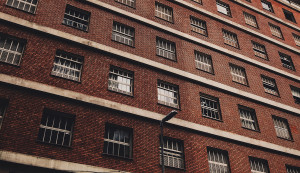Get To Know the Three Types of Brick Walls

When considering a brick wall for residential or commercial properties, it’s important to understand the three most common types of brick walls. Property owners can choose between solid, cavity, or veneer brick walls. Each of these options has distinct attributes and benefits.
Solid Brick Walls
Solid brick walls are comprised of two or more layers of brick. Metal ties or header bricks laid perpendicular to the wall are used to secure the layers to one another. The strength of a solid wall depends on its thickness and the durability of the brick and mortar used to construct the wall. When properly built and maintained, solid brick walls can last for centuries.
Cavity Brick Walls
This type of brick wall is constructed with an air pocket that acts as an integrated barrier against water entry. This makes it an ideal choice for brick wall construction in damp climates or low-lying areas. A cavity wall consists of an outer layer of brick connected to an inner support wall, with two to four inches of open space between these layers. The inner support can be constructed of poured concrete, concrete block, or brick. A cavity wall often contains drainage holes to let moisture that has accumulated in the air space escape.
Veneer Brick Walls
Veneer walls are made from a single layer of brick attached to steel or wooden studs. This type of construction provides a limited amount of insulation, which can be fortified by adding insulation to the studs beneath the brick wall. Many modern homes use brick veneers attached to a wood frame rather than solid brick.
Soumar Masonry Restoration, Inc. has completed brick masonry projects for residential buildings, industrial spaces, commercial buildings, and historic restorations in Chicagoland since 1938. Call us today or fill out our online form to request an estimate for your project.
